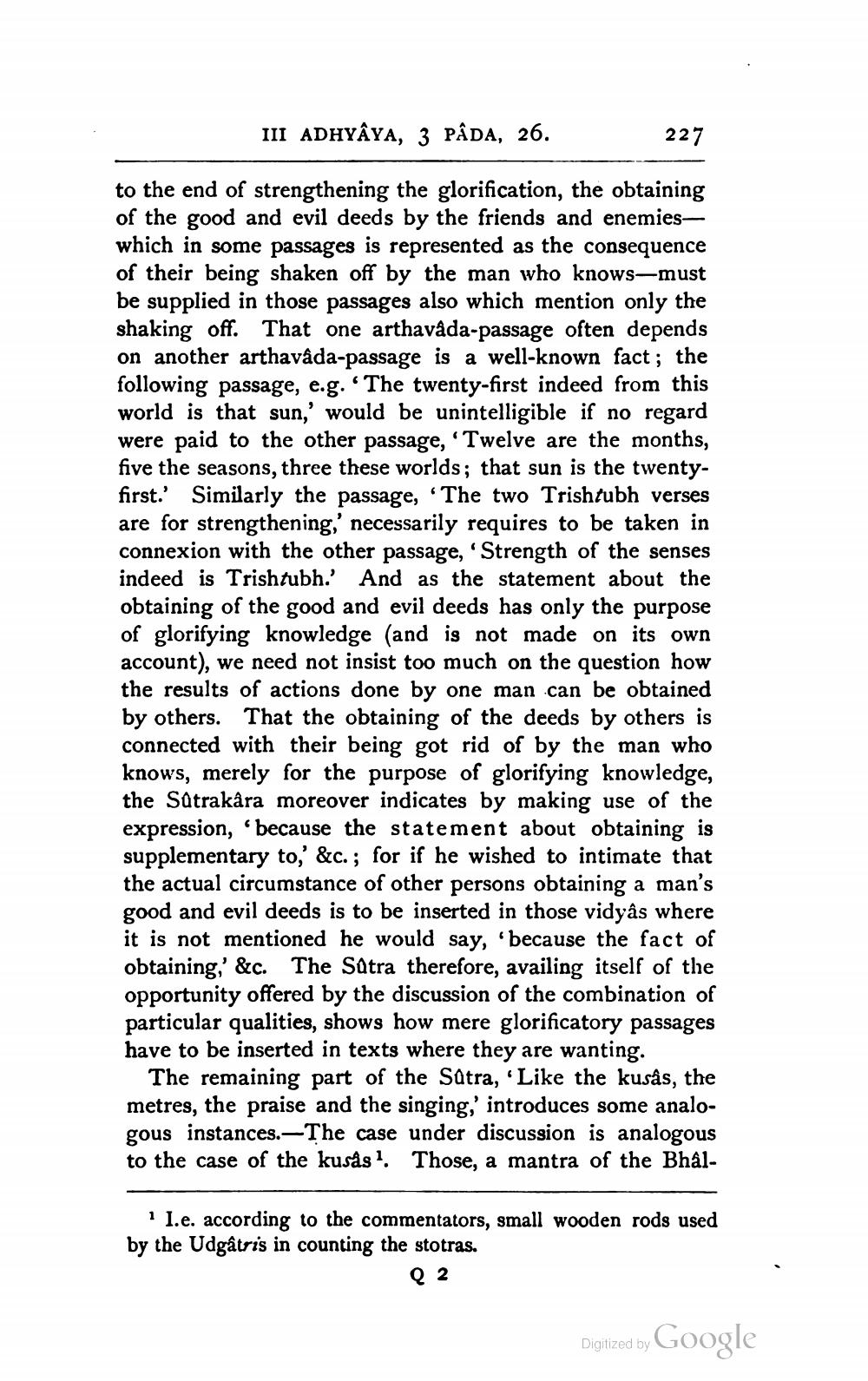________________
III ADHYAYA, 3 PÂDA, 26.
227
to the end of strengthening the glorification, the obtaining of the good and evil deeds by the friends and enemieswhich in some passages is represented as the consequence of their being shaken off by the man who knows-must be supplied in those passages also which mention only the shaking off. That one arthavada-passage often depends on another arthavâda-passage is a well-known fact; the following passage, e.g. 'The twenty-first indeed from this world is that sun,' would be unintelligible if no regard were paid to the other passage, 'Twelve are the months, five the seasons, three these worlds; that sun is the twentyfirst.' Similarly the passage, The two Trishtubh verses are for strengthening,' necessarily requires to be taken in connexion with the other passage, 'Strength of the senses indeed is Trishtubh.' And as the statement about the obtaining of the good and evil deeds has only the purpose of glorifying knowledge (and is not made on its own account), we need not insist too much on the question how the results of actions done by one man can be obtained by others. That the obtaining of the deeds by others is connected with their being got rid of by the man who knows, merely for the purpose of glorifying knowledge, the Satrakâra moreover indicates by making use of the expression, 'because the statement about obtaining is supplementary to,' &c.; for if he wished to intimate that the actual circumstance of other persons obtaining a man's good and evil deeds is to be inserted in those vidyâs where it is not mentioned he would say, because the fact of obtaining,' &c. The Satra therefore, availing itself of the opportunity offered by the discussion of the combination of particular qualities, shows how mere glorificatory passages have to be inserted in texts where they are wanting.
The remaining part of the Sætra, Like the kusås, the metres, the praise and the singing,' introduces some analogous instances.-The case under discussion is analogous to the case of the kusås . Those, a mantra of the Bhal
* I.e. according to the commentators, small wooden rods used by the Udgâtris in counting the stotras.
02
Digitized by
Digitized by Google




